detail profile elvira popescu
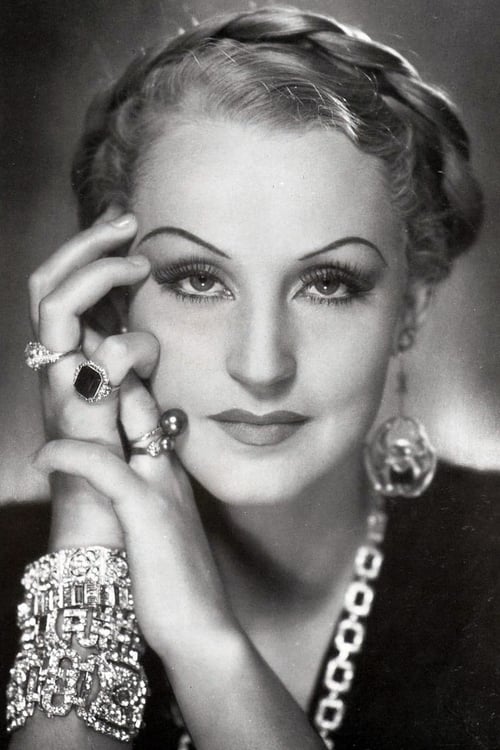
Elvira Popescu
Elvire Popesco
atau dikenal sebagai
Riwayat Hidup
Elvira Popescu (10 May 1894 – 11 December 1993) was a Romanian-French stage and film actress and theatre director.
During the 1930s and 1940s, she starred in a number of French comedy films.
Born in Bucharest, Popescu studied drama at the Music and Drama Conservatory in her native city, under the guidance of Constantin Nottara and Aristizza Romanescu.
In 1911 Grigore Brezeanu was making the first Romanian films to deal with fiction.
He employed Popesco as well as other leading actors like Nottara and Romanescu.
The first two films were called "Fatal Love" and "Spin a Yarn".
No copies are known of these films.
Popesco made her debut at the National Theatre Bucharest at age 16.
In 1912, she played herself in the movie Independența României, directed by Aristide Demetriade.
In 1919 she became artistic director of the Excelsior Theatre.
In 1921, Popescu started Teatrul Mic, which she managed in parallel with the Excelsior.
In 1923, she starred in the movie Ţigăncuşa de la iatac, directed by Alfred Halm.
At the urging of Louis Verneuil, the French playwright, Popescu moved in 1924 to Paris.
Under Verneuil's direction, she played the leading role in Ma Cousine de Varsovie, at the Théâtre Michel (1923).
She also played in Tovaritch (1933), La Machine infernale (1954), Nina (1949), and La Mamma (1957).
Later on, she was director of Théâtre de Paris (1956–1965), and Théâtre Marigny (1965–1978).
[5] At age 84, she played again in La Mamma.
Elvira Popescu also played in movies, such as La Présidente (Fernand Rivers, 1938), Tricoche et Cacolet (Pierre Colombier, 1938), Ils étaient neuf célibataires (Sacha Guitry, 1939), Paradis perdu (Abel Gance, 1940), Austerlitz (Abel Gance, 1960),[6] and Purple Noon (René Clément, 1960).
Shortly after her debut in 1910, Popescu married comedian Aurel Athanasescu and they had a daughter named Tatiana.
After a few years, she divorced, and married Ion Manolescu-Strunga, Minister of Industry and Commerce (who was to die in Sighet prison in the 1950s).
Her third husband was Count Maximilien Sébastien Foy (born in Paris on 17 April 1900, died in Neuilly-sur-Seine on 11 November 1967).
She died in Paris at age 99, and was interred at Père Lachaise Cemetery.
Source: Article "Elvira Popescu" from Wikipedia in English, licensed under CC-BY-SA 3.
0.
Info Pribadi
Peran Yang Di Mainkan Elvira Popescu
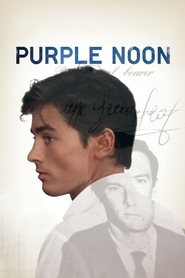 Tom Ripley is a talented mimic...
Tom Ripley is a talented mimic...Purple Noon 1960
Tom Ripley is a talented mimic, moocher, forger and all-around criminal improviser; but there's more to Tom Ripley than even he can guess.
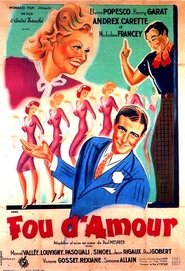 Claude who temporarily replaces his father...
Claude who temporarily replaces his father...Fou d'amour 1943
Claude, who temporarily replaces his father at the head of a department store, falls in love at first sight with a pretty female customer. He finds out that she is named Solange and that she is the goddaughter of Professor Hauteclerc, who runs a private psychiatric hospital. To come closer to the girl of his dreams, Claude has a crazy idea: he pretends to be mad so as to be placed in Hauteclerc's institution.
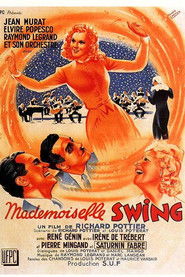 Stuck in Angoulme between her uncle...
Stuck in Angoulme between her uncle...Mademoiselle Swing 1942
Stuck in Angoulême between her uncle, who composes classical music, and her aunt, who is a fan of contemporary music, young Irène finds life boring. Fortunately, there is swing music which illuminates her days. So when, one day, Raymond Serre and his swing orchestra come to Angoulême, she seizes the opportunity to slip the copy of a song she has written into the pocket of one of the musicians. The trouble is that while she is doing so, the train she has boarded pulls out.
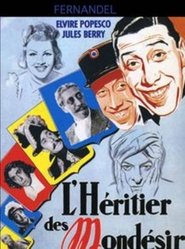 Bienaim a modest postman in love...
Bienaim a modest postman in love...The Mondesir Heir 1940
Bienaimé, a modest postman, in love with Janine, the village postmistress, does not know that he is the illegitimate son of the old Baron de Mondésir. The Baron dies and in happy amazement, Bienaimé finds he is the sole heir to the deceased's estate. But he should be careful, for two crooks, Waldemar and Erika, are after his newly-acquired wealth.
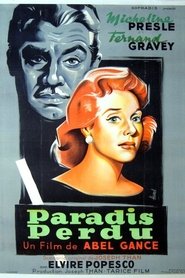 In preWorld Ward I in Paris...
In preWorld Ward I in Paris...Four Flights to Love 1939
In pre-World Ward I in Paris, a budding artist, Pierre LeBlanc, falls in love and marries Janine, a dressmaker's assistant. Pierre has a flair for designing clothes, and he and his bride live in a blissful paradise, until the war breaks out and he becomes a soldier. Janine dies in childbirth and, no longer desiring to live, Pierre volunteers for a dangerous patrol behind German lines. While recuperating in the hospital from a wound he received on the mission, Pierre spends his time drawing sketches of dresses. He becomes rich and famous after the war. Years later, after devoting himself to his daughter, Pierre seeks a marriage with a girl no older than his daughter. A conflict develops and to ensure his daughter's happiness, Pierre sacrifices his own plans.
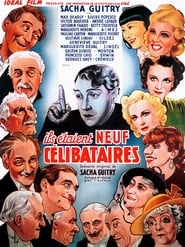 Nine Bachelors is a 1939 French comedy...
Nine Bachelors is a 1939 French comedy...Nine Bachelors 1939
Nine Bachelors is a 1939 French comedy film directed by Sacha Guitry and starring Guitry, Max Dearly and Elvire Popesco.[1] An opportunist dreams up a new scheme to make money when the French government passes a law forbidding foreigners from living in France. It's French title is Ils étaient neuf célibataires.
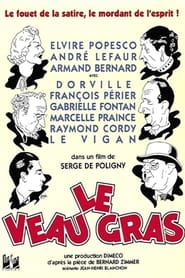 Jules Vachon a pharmacist has two...
Jules Vachon a pharmacist has two...The Fatted Calf 1939
Jules Vachon, a pharmacist, has two sons, Gabriel, a steady-minded young man dedicated to his job in the pharmacy, and Gaston, a good for nothing whose only talent is to seduce rich women and take money from their pockets. But it is Gaston who is hailed as a great man when he returns to his native village thanks to his deep pockets.
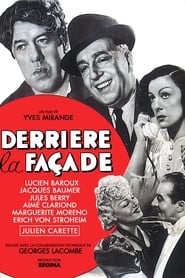 In the elevator of two large...
In the elevator of two large...Behind the Facade 1939
In the elevator of two large Parisian buildings, a telegraph operator discovers the body of an elderly woman, Madame Mathieu, the owner of both buildings. Boucheron, the local superintendent, is dispatched to investigate, along with his rival, Inspector Lambert of the "Sûreté". To solve the enigma, they scour staircases and corridors, visiting every floor of both buildings, courtyard and facade. Their gruff rivalry allows them to complement each other in discovering who committed the crime among a gallery of characters, humble or rich, who all have something to be ashamed of... A rare, fast-paced, picturesque comedy set against the backdrop of a police mystery.
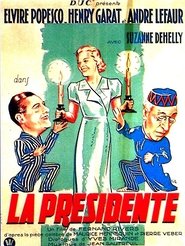 Vrotchka a vivacious theater actress touring...
Vrotchka a vivacious theater actress touring...La Présidente 1938
Vérotchka, a vivacious theater actress touring in a provincial town, is turned out of her hotel by orders of Monsieur Tricointe, the stern president of the local law court. In a rage, the actress knocks at Tricointe's door with a view to protesting against the treatment she is given. She goes about it so well that she ends up being accommodated by the president himself. This is the moment Jean-Pierre Gaudet, the Minister of Justice, chooses to pay an unannounced visit to his friend Tricointe. There he mistakes Vérotchka for Madame Tricointe and the president does not dare to contradict Gaudet. A lot of absurd situations ensue.
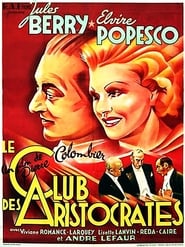 Serge loves living it up but...
Serge loves living it up but...Le Club des Aristocrates 1937
Serge loves living it up but painting the town red has a price... too high for him! What to do then? Alfred, his servant and former pickpocket, has the solution : steal of course! No sooner said than done ! Or rather: No sooner said than tried... For when Serge, assisted by his mistress Gloriane acting as bait, he tries to rob a jeweler on the Place Vendôme of a precious diamond bracelet, he realizes that a gang of thieves have preceded him. Later on, he will learn that the boss of the gang is a Polish noblewoman, Countess Waldapowska.
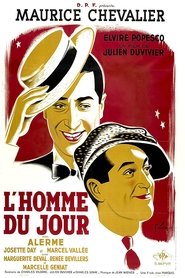 Alfred Boulard a goodnatured electrician gives...
Alfred Boulard a goodnatured electrician gives...The Man of the Day 1937
Alfred Boulard, a good-natured electrician, gives his blood to save Mona Thalia, a great theater actress. Mona Thalia survives and Boulard becomes the man of the hour. Grateful to him, Mona helps Alfred to become a singing star. But his fame will be short-lived.
 Dora Nelson a famous actress leaves...
Dora Nelson a famous actress leaves...Dora Nelson 1935
Dora Nelson, a famous actress, leaves both her husband Philippe de Moreuil and the role she was playing in a movie directed by Nivert, to follow her lover Santini in Italy. But she soon realizes that Santini deceives her with a girl named Elsa. In vexation she decides to return to her husband and to her career. Unfortunately for her, Suzanne Verdier, a little working girl, has in the meantime replaced her not only in the film she had left unfinished but in her husband's heart as well. Dora eventually understands she must step aside.
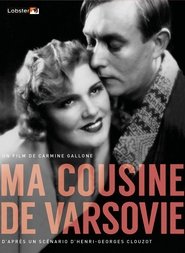 Archibald Burel a banker has had...
Archibald Burel a banker has had...My Cousin From Warsaw 1931
Archibald Burel, a banker, has had enough of his wife cheating on him, and with his best friend Hubert into the bargain! One day he has (at least that is what he thinks!) a bright idea : he asks Sonia, his cousin living in Poland but staying in Paris at the moment, to seduce Hubert. In these conditions, how could Lucienne not fall into his arms again? Unfortunately for Archibald, things do not go (at all!) according to plan : he himself falls for Sonia while Hubert manages to reconquer Lucienne! Dispirited, Sonia decides to return to Warsaw.
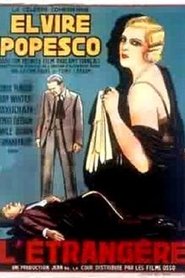 In a luxury hotel a gathering...
In a luxury hotel a gathering...The stranger 1931
In a luxury hotel, a gathering of foreign high society people attend a wedding lunch. By the end of the feast a dramatic turn of events occurs : on the time of leaving the groom realizes that his newly married wife has... disappeared ! One morning, some time later, he meets her again at the Bois de Boulogne. She tells him everything about her strange attitude: she needed to be married to be able to have access to her husband's money. With this money, she managed to avenge her mother.
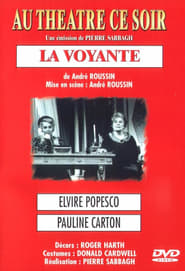
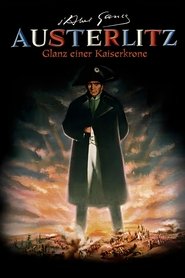 Napoleon Bonaparte crowns himself emperor and...
Napoleon Bonaparte crowns himself emperor and...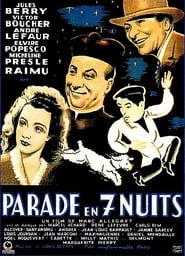 In the pound Pipo the dog...
In the pound Pipo the dog...